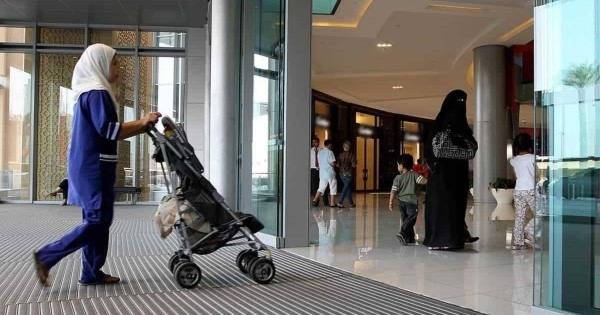Saudi Arabia faces complexities of informal domestic work, a sector marked by vulnerabilities and abuses. Despite some efforts towards regulation, the issue of domestic workers in the kingdom remains a pressing concern. While Decision No. 310/1434 of 2013 extended certain protections to this marginalized workforce, significant gaps persisted, leaving workers exposed to exploitation. Under the previous framework, domestic workers, including household staff of both genders, faced long work shifts without compensation for overtime. Reports of passport confiscation, forced confinement along with physical, mental, and sexual abuse underscored the urgent need for comprehensive reform. The concerning revelation of domestic workers being ‘sold’ online only reinforced the urgency of the situation.
25-year-old Joy Simiyu is one Kenyan domestic worker who decided to seek employment in Saudi Arabia. With unemployment on the rise in Kenya, Joy was hopeful that she would be able to financially support herself as a domestic worker in the Gulf. Instead, Joy endured abuse and exploitation, forcing her to return home after a few months. During her time in Saudi Arabia, Joy recounted how she was deprived of food and rest, and her wages were not paid. Now, she warns others about the realities of working in Saudi Arabia and counts herself lucky to have made it back home.
Reports of abuse and exploitation, exemplified by Joy’s experience, points out the urgency for comprehensive reform. While Saudi Arabia introduced a new law in October 2023, set to take effect in September 2024, its effectiveness hinges on implementation and enforcement. Past regulations often languished unenforced, rendering them ineffectual. The new law must be accompanied by robust monitoring mechanisms and accessible avenues for complaints to ensure compliance.
Although this legislation represents a step forward, explicitly banning passport confiscation, establishing maximum working hours, and introducing occupational safety and health regulations, it did not have a real impact on the lives of informal workers. The effectiveness of these measures hinges on their implementation. The new law must be accompanied by robust monitoring mechanisms and accessible avenues for complaints to ensure compliance. Without these safeguards, the potential benefits of the legislation may remain elusive.
Crucially, the new law fails to address the issue of minimum wage for domestic workers, highlighting an omission in labor protections. Moreover, the persistence of the Kafala system perpetuates an unequal power dynamic between employers and workers, impeding meaningful progress towards fair treatment. To truly uplift domestic workers, they must be afforded the same rights and protections as any other sector. Integration into the broader labor law framework is imperative, ensuring equitable treatment and recourse for grievances. Reforms to the Kafala system are equally vital, dismantling barriers to autonomy and empowering workers to assert their rights.
The new legislation represents a significant stride towards safeguarding the rights of domestic workers, yet challenges persist. Meaningful change requires not only the enactment of laws but a commitment to their enforcement and the dismantling of systemic barriers. Only through concerted efforts can Saudi Arabia realize its vision of a fair and inclusive society for all its inhabitants.





